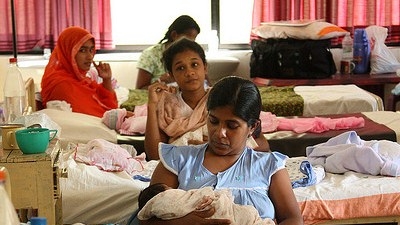Sri Lanka has impressive health achievements when compared to other developing and lower-middle-income countries. Maternal and infant mortality rates are at 36 per 100,000 and 12.2 per 1,000 live births, respectively.
The country is experiencing a demographic and epidemiological transition, partly due to its success in the health sector -- an aging population with life expectancy at 74.9 years, and 9.2% of the population over 60.
In the last 50 years, Sri Lanka has seen a reduction from 42% to 20% in the proportion of deaths due to infectious diseases, yet the percentage of deaths from cardiovascular disease has risen from 3% to 24%. Nutrition also poses a problem in Sri Lanka, where under-nutrition and over-nutrition coexist, sometime within the same family.
The rising trends in non-communicable diseases are associated with the changing age distribution, economic development, urbanization, increased motorization, and changes in lifestyle.
To help address these issues, the International Development Association approved a $200 million loan to the government of Sri Lanka on March 27.
“Investing in further improvement of the health system will be a critical prerequisite for Sri Lanka’s vision,” said Diarietou Gaye, country director, World Bank Sri Lanka. “A more modernized and efficient health system employing more international standards will not only help achieve the objective of improving living standards and social inclusion, but it will also contribute to the broader objectives set out in the Mahinda Chintana document, including sustained economic growth, and a move toward a knowledge-based and competitive economy.”


